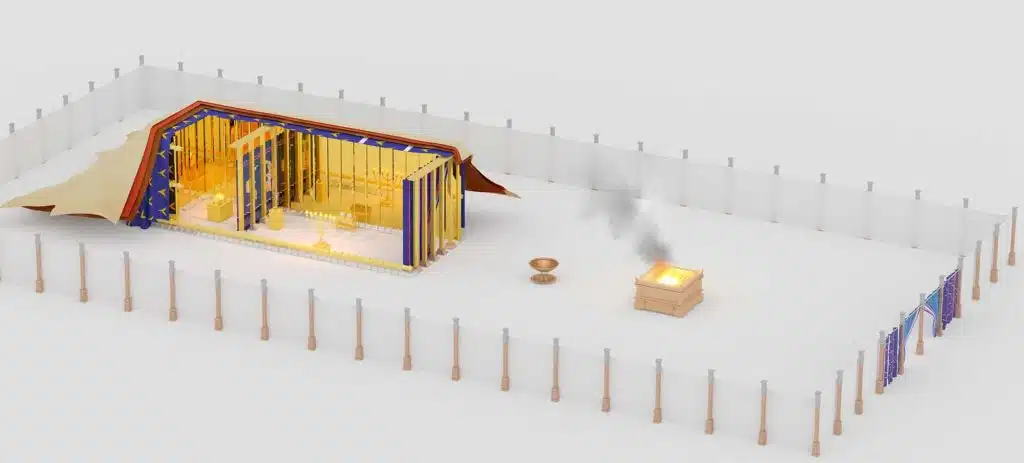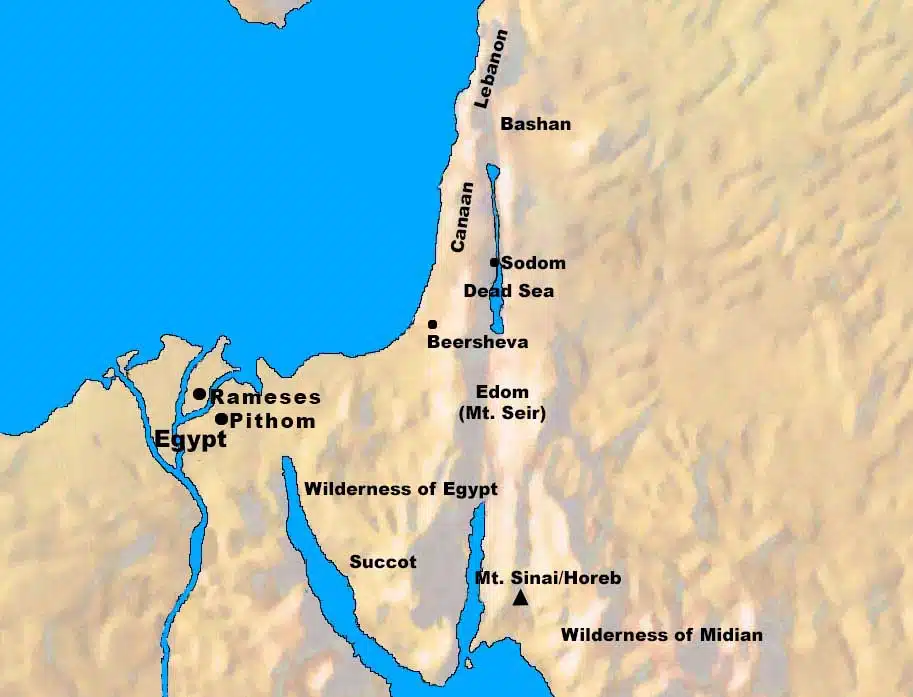The LORD describes where the altar of incense was to be placed.
The LORD instructed Moses to put this altar in front of the veil that is near the ark of the testimony. To this point, located in the holy place is the lampstand with seven lamps (Exodus 25:31-40). The veil separated the holy place from the most holy place, where the ark was located. The high priest would pass through the holy place on his way into the most holy place.
Leviticus 16:12–13 states that the high priest would take incense from this altar and “bring it inside the veil” with a “firepan full of coals” when ministering in the most holy place on the Day of Atonement. This reconciles a question that arises in Hebrews 9:3–4 which can be read to imply that its location was in the “Holy of Holies.”
Most believe that only the High Priest was allowed to enter the Holy of Holies, and only once per year (Leviticus 16:30), and the incense was burned continually. The word translated altar in Hebrews 9:4 can also be translated “censer” which could refer to the incense-burning instrument, the “firepan” referred to in Leviticus 16:12 that the the High Priest was to carry into the Holy of Holies each year.
We also see in Revelation that a “golden censer” is used to bring incense to the “golden altar” that is before the Lord (Revelation 8:3). In this case the incense represents the prayers of the saints being offered to God. The earthly tabernacle is a representation of the true tabernacle in heaven:
For Christ did not enter a holy place made with hands, a mere copy of the true one, but into heaven itself, now to appear in the presence of God for us (Hebrews 9:24).
Biblical Text:
6 You shall put this altar in front of the veil that is near the ark of the testimony, in front of the mercy seat that is over the ark of the testimony, where I will meet with you.

Check out our other commentaries:
-
Exodus 12:29-36 meaning
Verses 29-36 relate the coming of the tenth plague and its immediate aftermath. The time for judgment (on Egypt) and deliverance (for Israel) had come....... -
Matthew 21:28-32 meaning
Jesus tells a parable about two disrespectful sons of a vineyard owner. Both are told to go work in the vineyard by their father. The...... -
Galatians 3:19-22 meaning
Since the Law had nothing to do with either the giving or receiving of the promise of God, Paul answers an obvious question: What is...... -
Exodus 22:5-6 meaning
These are judgements for damage done to someone’s grazing fields and vineyards. Such damage could adversely affect or ruin the livelihood of the owner....... -
Deuteronomy 12:13-14 meaning
The requirements for worshipping the LORD when living in the Promised Land are brought to a close. Moses emphasizes the importance of obeying these commands......



